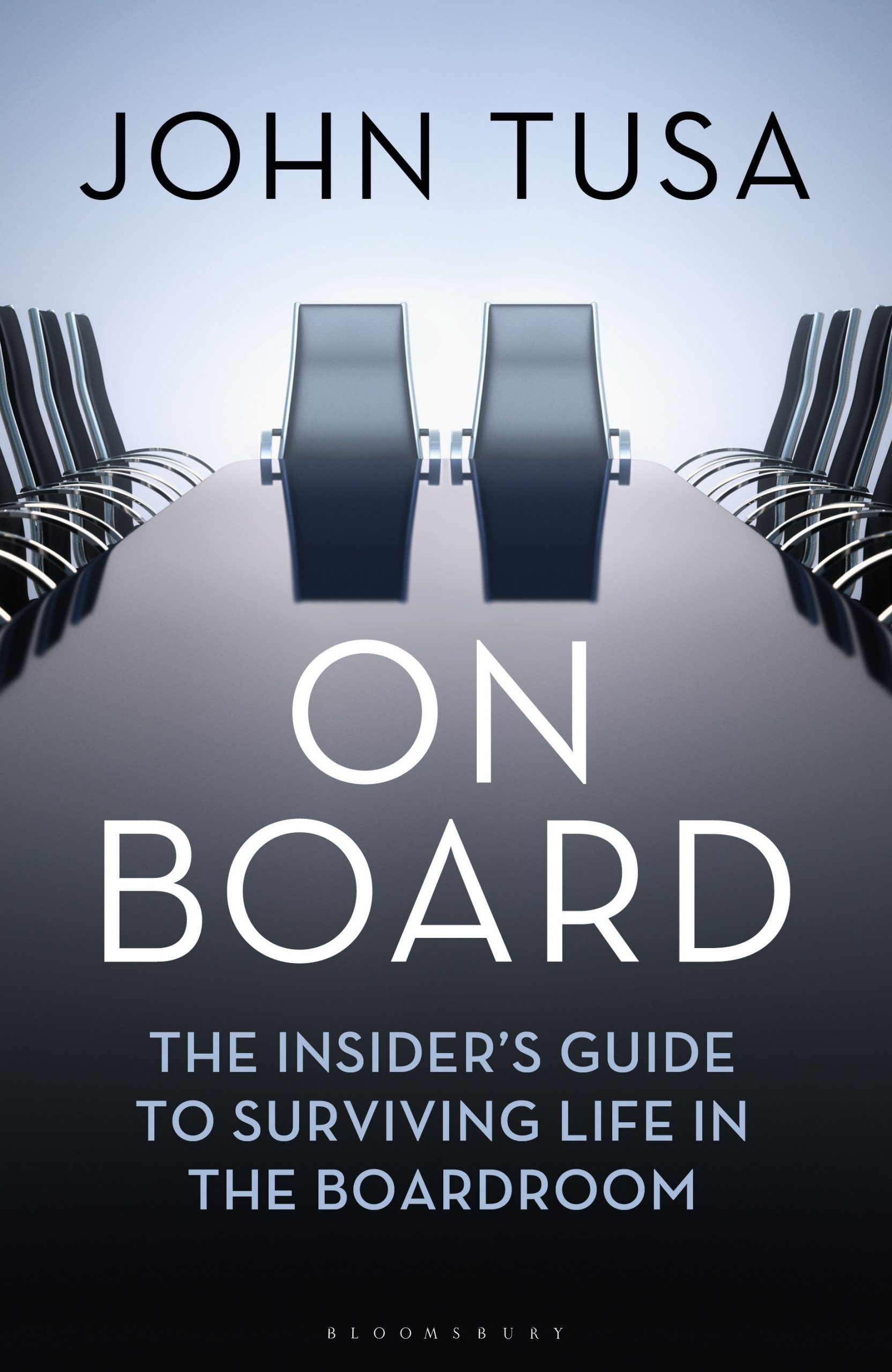I have a core issue with many business, development, self-help and management books – as good as the idea is, it often doesn’t need 200 plus pages to explain. Many’s the time I’ve found myself grinding through the second half of a tome, willing it to end because, and this isn’t me being clever here, I’ve kinda got the message.
I understand the issue – 50 page books don’t sell as well, and certainly don’t have the same margins. However, at 232 pages, John Tusa’s book: On Board, ends all too soon. It’s hard to label this one a business book – it’s actually a memoir of his time on a range of governing boards for some of the most prestigious arts institutions in the UK (and beyond). Each chapter covers one organisation – such as The British Museum, University of Arts London, The English National Opera or the Clore Leadership Programme. Tusa carefully and unsensationally walks through his time with each, taking an unsentimental, honest look at the workings of the board and the exec.
Part of me wanted more boardroom tantrums and tales of board member excess – but Tusa largely avoids this, and takes time and care to examine conflicts and look at issues from a number of angles to bring out the learnings. Overall, he takes a humble tone – never over-stating achievements and ensuring that those deserving of the praise receive it. It’s only really at the end that the knife is drawn – Tusa’s damning take on Marmaduke Hussey’s Chairmanship of the BBC is startling in context to the rest of the book (but, doubtless, not a surprise to many).
It’s in equal parts a fascinating glimpse behind the scenes of some of our best-loved institutions and a guide on how governing boards should work. Clearly, Tusa was heavily influenced by Kenneth Dayton – ex-President of Target in the US – whose approach to Board governance reads as a masterclass in its own right. The book pulls out the pitfalls that many boards fall into, and explores the complex relationship between them and the management of the organisation.
This is not a book for everyone – it’s arts-world heavy (and never pretends not to be) so those wanting a more ‘business’ focus may struggle. But, for me, that shouldn’t matter – the principles of good governance and the balance of responsibility and restriction are universals that would apply anywhere. If you are on a board, about to join one or have interactions with your organisation’s governing body, then this is essential, I say again essential reading. More broadly, there are some great leadership lessons in here, and I would champion the ‘American Board’ chapter be required reading for any decent business management programme.
And it ends on a high (something many business books really lack). The reflections chapter is short, pithy and thought-provoking. It outlines Tusa’s overall take on governance, which he describes at one point as ‘…an entirely human activity.’ Reflecting on that, you realise that all of the preceding chapters hinged on that idea, with the importance of relationships, personality and shared values being the critical elements, not the process or technical intricacies.
I finished the book wishing that I was part of a governance board for a large institution, but also hugely daunted at such a thought and very thoughtful about whether or not I had the right skill or experience. Quite possibly, that’s one of the outcomes that On Board is looking to create.
Chris Preston is a culture expert and one of the founding partners of The Culture Builders









